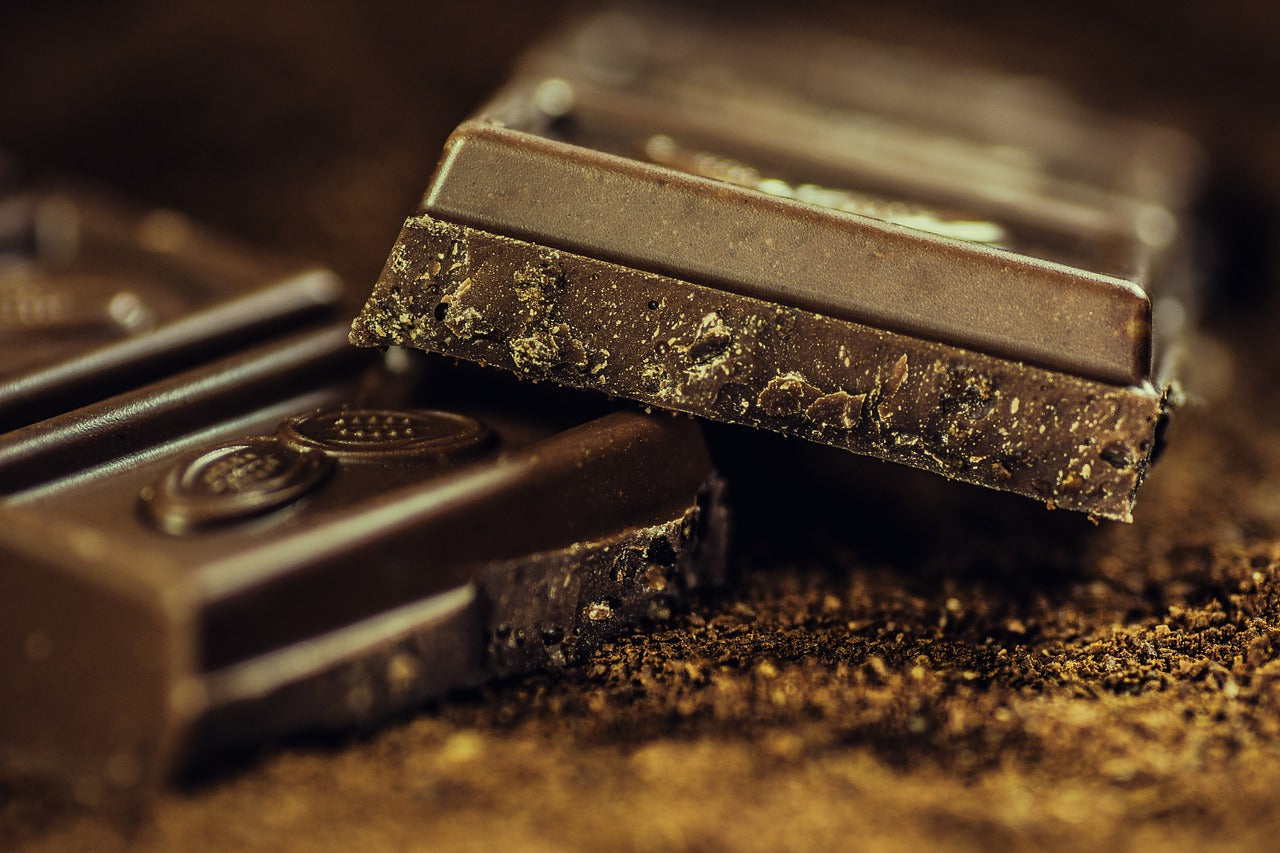Recent health studies have made everyone feel better about indulging in a daily piece of dark chocolate. But what if your daily indulgence was full of heavy metals? Heavy metals have long been known to saturate healthy drinking water. But now health officials are warning people about the possible contamination of their favorite foods, including chocolate.
Dangers of Heavy Metals in Food
According to a study published in the British Medical Bulletin, heavy metal exposure to lead, cadmium, mercury and arsenic has increased over the past 100 years. While cigarette smoking is a major source of cadmium exposure, food is the most important source for non-smokers.
Data shows that even low exposures to cadmium may cause kidney damage and an increase in bone fractures.
Mercury is primarily exposed to humans via fish. There is a low association between mercury levels in food and neurological damage to adults. Pregnant women are asked to stay away from fish such as shark, swordfish, tuna, pike, walleye and bass because mercury is particularly damaging to the fetus.
Most of the population is equally exposed to lead through air and food sources.
Children are especially affected by lead because of their high gastrointestinal uptake. Lead may easily access the blood brain barrier in children, which can lead to neurological problems. For that reason, no amount of lead is considered safe for children.
Health officials recommend avoiding lead in food containers to prevent further contaminating food.
Humans can be exposed to arsenic via food and water intake, but food is the most important source in most areas, which is why we recommend filtering your drinking and shower water. Long term exposure to eating food sources with arsenic is associated with an increased risk of skin lesions such as hyperkeratosis and pigmentation changes.
How Do Heavy Metals Get In Our Food?
According to The Natural Confectioners Association, some minerals, such as cadmium and lead, are naturally occurring in food sources including seafood, potatoes, peanuts, leafy vegetables, grains and cocoa beans, which is bad news for chocolate lovers.
Health risks occur when people eat too many foods with heavy metals in them. According to health officials, it only takes a very small amount of heavy metals to be considered dangerous to health.
Being aware of which foods contain heavy metals is the best way to cut down on your intake!
Popular Chocolate Brands with High Levels of Heavy Metals
Several popular chocolate brands were tested for heavy metal levels and the following were found to contain high levels of lead:
- Alfred Ritter’s Ritter Sport Extra Dark Chocolate
- Whole Foods Market’s Organic Dark Chocolate Coconut
- Endangered Species Chocolate’s Natural Dark Chocolate
- Equal Exchange’s Organic & Fairly Traded Dark Chocolate
- Godiva Chocolatier’s Extra Dark Chocolate
- Hershey’s Dagoba Organic Extra Strong Dark Chocolate
- Lake Champlain Organic Dark Chocolate
- Lindt & Sprungli’s Excellence Extra Dark Chocolate Bar
- Mars’ Dove Eggs Dark Chocolate
- See’s Candies’ Premium Extra Dark Chocolate
Other Common Foods With High Heavy Metal Exposure
Although news of chocolate containing heavy metals may be the most devastating of all, there are several other foods that you need to be aware of.
Back in 2011, baby foods in the United Kingdom that were used to wean infants off milk were found to have alarming amounts of lead, cadmium and arsenic. Arsenic levels in foods were regulated by the European Union to a limit of 1 mg/kg with separate limits for certain food categories. But those regulations were revoked in 2002 as scientific evidence was considered outdated.
The following is a list of foods with significant levels of heavy metals.
- Mercury:
- Bass
- Bluefish
- Grouper
- Halibut Lobster
- Marlin
- Orange Roughy
- Sea Trout
- Snapper
- Tuna
- King Mackeral
- Shark
- Swordfish
- Titlefish
- Cadium:
- Shelled seeds
- Organ meats
- Cabbage
- Potato Chips
- Peanuts and peanut butter
- French fries
- Cookies
- Celery
- Potatoes
- Lead:
- The main food source of lead is in pesticides. For this reason, be sure to buy organic foods and produce whenever possible!
How to Avoid Consuming Heavy Metals in Foods
The best way to avoid consuming heavy metals in your food is to buy organic as pesticides are linked to heavy metal contamination.
Avoiding brands of chocolate that are associated with heavy metals will also help.
In addition to eating organic foods, be sure to include lots of fruits and vegetables that are full of antioxidants in your diet to naturally promote the removal of toxins.
Foods that contain high amounts of zinc, iron, folate, calcium, vitamin E, vitamin C and beta-carotene will help naturally get rid of heavy toxins.
Good sources include citrus fruits, sprouted nuts and seeds, carrots, sweet potatoes, apricots and peaches. Garlic and cilantro will also help naturally detox the body.




























Leave a comment